Politics
Is SCO transforming into a new military-economic bloc?
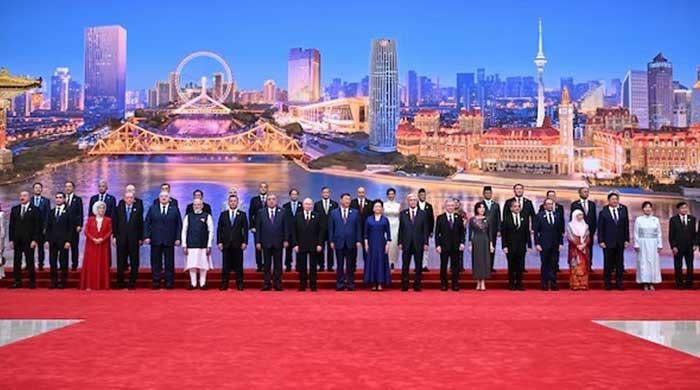
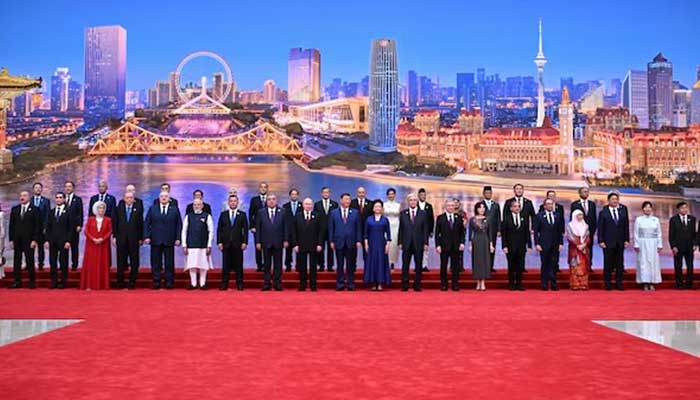
The Shanghai Cooperation Organisation (SCO) summit has raised many eyebrows in Europe and alerted the United States of America. There were strong reasons for that.
First and foremost, without naming any adversary, President Xi Jinping had made obvious remarks against the US. And by stressing security, SCO warned the West that this forum may one day have its own IMF and a military alliance.
To grasp the significance of the summit and the victory parade against Japanese aggression, I put a few direct questions to His Excellency Yang Yundong, Consul General of the People’s Republic of China in Karachi.
Q: Last week, China held the SCO summit, where it hosted a unique group of leaders and celebrated people’s historic victory over fascism and the Japanese aggression. What message did this gathering give to the West, especially to the United States of America?
A: The SCO Summit in Tianjin was an important meeting hosted by China as the presidency. It was attended by leaders and representatives of more than 20 countries and 10 international organisations. The summit adopted the Tianjin Declaration. President Xi Jinping put forward important proposals: upholding unity in diversity, mutual benefit and win-win outcomes, openness and inclusiveness, fairness and justice, as well as pragmatic and efficient cooperation, while also advancing the Global Governance Initiative (GGI).
He stressed that the SCO should play a leading role, remain a stabilising force in a turbulent world, promote global openness and cooperation, steer economic globalisation toward a more inclusive and beneficial direction, and continue to foster exchanges and mutual learning among civilisations.
President Xi made it clear that the SCO must firmly oppose hegemony and power politics, practice genuine multilateralism, and serve as a mainstay in advancing multi-polarity and democracy in international relations. The proposals were welcomed and supported by leaders of participating countries and received broad recognition and positive response from the international community.
Q: During the victory parade, the world also witnessed the most sophisticated and stunning weaponry. President Xi Jinping said, “China will not be intimidated by any bully; it will always move forward.’’ Were these gestures meant for Washington?
A: China held a grand military parade in solemn commemoration of the 80th anniversary of the victory of the Chinese People’s War of Resistance Against Japanese Aggression and the World Anti-Fascist War. Our purpose is to remember history, honour fallen heroes, cherish peace, and create a better future. History cautions us that humanity rises and falls together.
Only when all countries and nations treat each other as equals, coexist in peace, and support each other can we uphold common security, eradicate the root cause of war, and prevent the recurrence of historical tragedies. Today, humanity again must choose between peace and war, dialogue and confrontation, win-win cooperation and zero-sum game.
China will firmly stand on the right side of history and the progress of human civilisation and remain committed to the path of peaceful development. China will speed up the building of a world-class military and firmly safeguard China’s sovereignty, unity, and territorial integrity.
All service members will provide strategic support for the great rejuvenation of the Chinese nation and make greater contributions to the peace and development of the world.
Q: President Xi explained his vision for the new global order by mentioning “Global Governance Initiative” and saying that Global governance has reached a new crossroads. In his own words, “We must continue to take a clear stand against hegemonism and power politics, and practice true multilateralism.” Is it the first step towards a probable SCO military alliance?
A: Currently, the world is undergoing frequent regional turmoil, impeded economic development, backlash against globalisation, gaps in rules and the rule of law, and an intensifying deficit in governance. Against this backdrop, questions of what kind of global governance system to build and how to reform and improve the existing global governance system have increasingly become major topics of high concern to the international community.
President Xi Jinping clearly articulated the core concepts of the GGI, namely, adhere to sovereign equality, abide by international law, practice multilateralism, advocate the people-centred approach, and focus on taking real actions. The GGI is another important global public good that President Xi Jinping has contributed to the world following the three major global initiatives.
Each of the four global initiatives has its own focus, yet they are mutually reinforcing, addressing development, security, civilisation, and governance respectively. Together, they inject stability and certainty into a turbulent world, showcasing China’s responsibility and actions in international affairs.
China has unwaveringly pursued an independent foreign policy of peace based on the principle of “partnership over alliance”, while extensively establishing partnerships with various countries to deepen friendly cooperation and safeguard world peace and common development.
Q: President of the Russian Federation, Vladimir Putin, believes that the SCO has revived genuine multilateralism. To him, this summit has laid the groundwork for a new political and socio-economic system in Eurasia. In President Putin’s own words, “This security system, unlike Euro-centric and Euro-Atlantic models, would genuinely consider the interests of a broad range of countries, be truly balanced, and would not allow one country to ensure its own security at the expense of others.”
A: Since its establishment 24 years ago, the SCO has consistently adhered to the principles of openness, transparency, and not targeting third parties. It emphasises partnership over alliance among member states, does not seek to establish military-political blocs, and firmly opposes Cold War mentality and power politics, making it an important force in maintaining regional stability.
The SCO advocates a new vision of common, comprehensive, cooperative, and sustainable security, emphasising that security should be universal — it is unacceptable to have security for one country at the expense of others, or for some nations to enjoy security while others remain insecure, let alone pursuing so-called “absolute security” by sacrificing the security of other countries.
It is essential to abide by the fundamental norms of international relations, such as respecting sovereignty, independence, and territorial integrity, and non-interference in internal affairs, while respecting the social systems and development paths independently chosen by each country. The reasonable security concerns of all parties should be acknowledged and accommodated. The SCO is committed to maintaining global strategic stability and achieving common and universal security.
Q: At the SCO summit, President Xi also proposed the creation of a new SCO Development Bank. China has shown willingness to provide $280 million in free aid to SCO members this year and $1400 million in loans to the SCO banking consortium. Is China trying to build an IMF or World Bank for SCO and curtailing the power of the US dollar and US sanctions or conditions imposed on the debtors?
A: The SCO, as a regional cooperative body dedicated to maintaining regional security and promoting common development, has continuously expanded the depth and breadth of its cooperation. China’s proposal to establish an SCO development bank is based on the shared aspirations and practical needs of its member states.
It aims to provide stable financial support for regional infrastructure construction, connectivity projects, and other cooperation initiatives that benefit people’s livelihoods. This is entirely a normal, mutually beneficial, and win-win cooperative arrangement among SCO member states, as well as an independent practice of regional cooperation.
China has always believed that the international financial system should be more just and equitable, better reflecting the voices of emerging markets and developing countries. Financial cooperation among SCO member states is intended to better serve the well-being of the people in the region and has nothing to do with any geopolitical games.
Q: After this summit, the US president has claimed that ‘India and Russia appear lost to deepest and darkest China’. Is China a Deep State and Dark State, as labelled by President Donald Trump?
A: Under the leadership of the Communist Party of China, China is vigorously advancing Chinese-style modernisation to realise the great rejuvenation of the Chinese nation and to fulfil our people’s aspirations for a better life.
At the same time, China is actively making its due contributions to global peace and development. China will always be a force for peace, stability, and progress in the world. We consistently adhere to an independent foreign policy of peace and are committed to building a community with a shared future for mankind. Our actions are open and upright, capable of standing the test of history and fact.
Q: With reference to the same statement by the US President, we see that Russia and China have had good relations for decades, but can India be bracketed in the same place? After all, Delhi is sailing in two boats. It is an active member of the Quad in the Indo-Pacific region and at the same time, participates in the SCO.
A: Some countries always view interstate relations through the lens of zero-sum game thinking. In fact, the world today is multi-polar, and it is entirely natural for a country to develop friendly and cooperative relations with different nations and organisations based on its own interests.
Guided by the Shanghai Spirit of mutual trust, mutual benefit, equality, consultation, respect for diversity of civilisations, and pursuit of common development, the SCO adheres to openness and inclusiveness and does not target any third party. We welcome India’s active participation in various cooperation initiatives within the SCO and also hope that India can play a constructive role in maintaining regional peace and stability.
Q: According to the office of the United States Trade Representative, US goods and services trade with India totalled an estimated $212.3 billion in 2024, up 8.3% ($16.3 billion) from 2023. Based on this fact, don’t you think New Delhi is using newfound love for Beijing as a bargaining chip against Washington?
A: China and India are both major developing countries and important members of the Global South. We stand ready to work with India to act on the important common understandings reached by leaders of our two countries, maintain the momentum of high-level exchanges, cement political mutual trust, enhance practical cooperation, properly handle differences, and promote the sustained, sound, and steady development of China-India ties. We believe that the development of bilateral relations is not targeted at any third party, nor should it be interfered with by any third party.
Politics
Trump warns of swift new US strikes if Iran revives nuclear programme
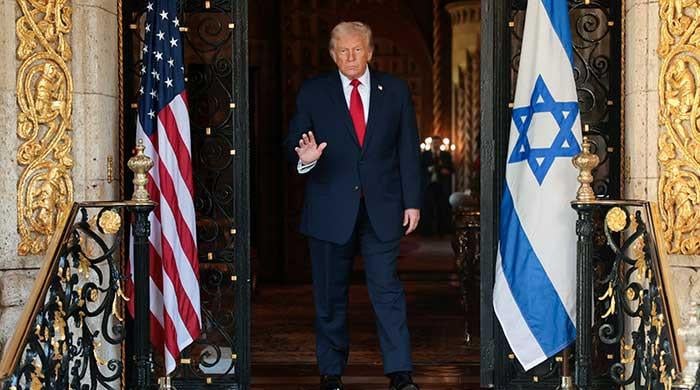
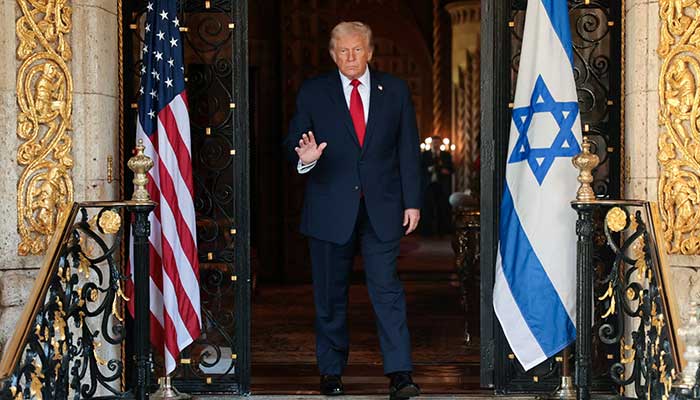
- Trump says open to negotiating smarter Iran deal.
- Hopes Israel moves towards better ties with Syria.
- Relays Putin claim of Ukrainian attack on residence.
US President Donald Trump on Monday said that the US would quickly launch new attacks on Iran if it is rebuilding the nuclear programme that he struck in June.
“I hear Iran is trying to build up again, and if they are, we have to knock them down,” he told reporters while welcoming Israeli Prime Minister Benjamin Netanyahu to his Mar-a-Lago estate in Florida to discuss the next phase Gaza plan. “We’ll knock the hell out of them.”
Trump also said he remained open to negotiating a “deal,” which he called “much smarter.”
“I feel that if you had the wrong prime minister, Israel would not exist,” Trump told reporters, in remarks full of praise for the Israeli leader.
He said Israeli President Isaac Herzog had told him he planned to pardon Netanyahu of corruption-related charges.
He added that he hoped Israel could get along with Syria, even as Netanyahu’s government has consistently infringed upon Syrian territorial sovereignty since former strongman Bashar al-Assad was deposed late last year.
Russia-Ukraine conflict
Trump further said that Russian President Vladimir Putin told him Ukraine tried to attack Putin’s residence in northern Russia, which Kyiv has denied.
Russia accused Ukraine of trying to attack Putin’s residence in northern Russia, although it provided no evidence to back up an assertion that Kyiv dismissed as baseless and designed to undermine peace negotiations.
“I don’t like it. It’s not good,” Trump told reporters when asked if he was worried the allegation could affect his efforts to broker peace. “I learned about it from President Putin today. I was very angry about it.”
“It’s a delicate period of time. This is not the right time. It’s one thing to be offensive, because they’re offensive. It’s another thing to attack his house. It’s not the right time to do any of that,” he said.
When asked if there was any evidence of such an attack, Trump said: “We’ll find out.”
He described his call with Putin earlier on Monday as a “very good talk.”
“We have a few very thorny issues,” Trump said about talks to end the war in Ukraine.
Russia controls about a fifth of Ukraine, including the Crimean peninsula, which it annexed in 2014.
It claims Donbas — comprising the Donetsk and Luhansk regions — as well as the Zaporizhzhia and Kherson regions, although they are all internationally recognised as Ukraine’s sovereign territory.
Russia wants Kyiv to withdraw troops from parts of the Donetsk region it has failed to occupy. Kyiv wants fighting halted along the current front lines, and Washington has proposed a free economic zone if Ukraine pulls troops back.
Politics
Peace hopes dented as Russia says Ukraine tried to attack Putin residence
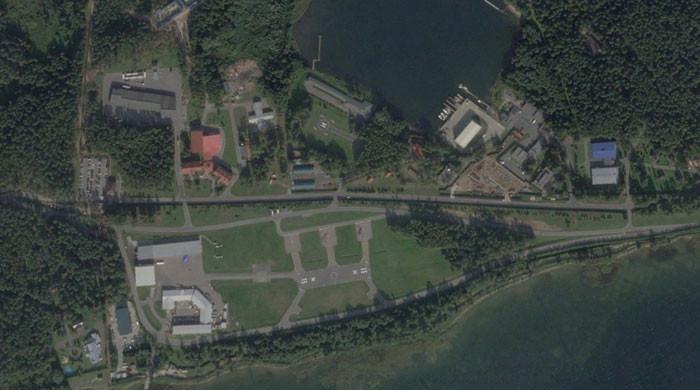
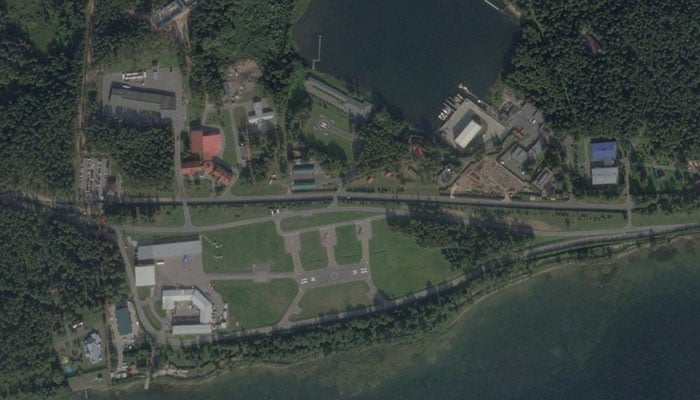
- Trump met Zelenskiy in Florida on Sunday.
- Ukraine says territorial issue remains unresolved.
- Ukraine denies accusation as fabrication to block peace.
MOSCOW/KYIV: Russia accused Ukraine on Monday of trying to attack President Vladimir Putin’s residence in northern Russia, although it provided no evidence to back up an assertion that Kyiv dismissed as baseless and designed to undermine peace negotiations.
The angry exchanges, including a statement by Russia that it was reviewing its stance in negotiations in response to the attack, dealt a new blow to prospects for peace in Ukraine.
On Sunday, US President Donald Trump met President Volodymyr Zelenskiy in Florida and said they were “getting a lot closer, maybe very close” to an agreement to end the war, although “thorny” territorial issues remained.
Putin also struck a defiant tone on Monday, telling his army to press on with a campaign to take full control of Ukraine’s Zaporizhzhia region, and the Kremlin repeated demands for Kyiv to pull its forces out of the last part of the Donbas area that they still hold in eastern Ukraine.
Putin told Trump by phone that Russia, which invaded Ukraine in February 2022, was reviewing its stance following the reported drone attack, an aide said.
Lavrov accuses Ukraine, Zelenskiy issues denial
Foreign Minister Sergei Lavrov said Ukraine had tried to attack Putin’s residence in the Novgorod region west of Moscow on December 28-29 with 91 long-range drones which were all destroyed by Russian air defences. No one was injured and there was no damage, he said in comments reported by Russian media.
“Such reckless actions will not go unanswered,” the veteran foreign minister said, describing the attack as “state terrorism” and adding that targets had already been selected for retaliatory strikes by Russia’s armed forces.
Lavrov appeared in televised remarks not to have offered any evidence for his assertions. It was not clear where Putin was at the time.
Lavrov noted that the attack took place during negotiations about a possible peace deal, and said Russia would review its negotiating stance but not quit the negotiations.
Denying Ukraine had planned such an attack, Zelenskiy accused Moscow of preparing the ground to strike government buildings in Kyiv, saying Russia wanted to undermine progress at US-Ukrainian talks on ending the war.
“Another round of lies from the Russian Federation,” Zelenskiy told reporters via WhatsApp.
“It is clear that we had a meeting with Trump yesterday, and it is clear that for the Russians, if there is no scandal between us and America, and we are making progress – for them it is a failure, because they do not want to end this war.”
He added: “I am sure they are simply preparing the ground for strikes, probably on the capital, probably on government buildings.”
Ukrainian Foreign Minister Andrii Sybiha said on X the attack was a fabrication intended to create a pretext for more Russian attacks on Ukraine and to undermine the peace process. He urged world leaders to condemn Russia over its accusations.
Territorial issues unresolved
Zelenskiy said a bilateral agreement had been outlined with Trump on security guarantees for Kyiv on Sunday, although the US president said they were only 95% ready and Zelenskiy said on Monday that he had sought a 50-year security deal.
Trump also said he expected European countries to “take over a big part” of security efforts with US backing. Agreement on such moves would be complicated, as Russia has said any foreign troop deployment in Ukraine would be unacceptable.
Zelenskiy said on Monday two main issues in a 20-point peace proposal remained to be resolved – control of Ukraine’s Zaporizhzhia nuclear power station, which is in Russian hands, and the fate of the Donbas area.
Russia controls about a fifth of Ukraine, including the Crimean peninsula, which it annexed in 2014.
It claims Donbas – comprising the Donetsk and Luhansk regions – as well as the Zaporizhzhia and Kherson regions, although they are all internationally recognised as Ukraine’s sovereign territory.
Russia wants Kyiv to withdraw troops from parts of the Donetsk region it has failed to occupy. Kyiv wants fighting halted along current front lines, and Washington has proposed a free economic zone if Ukraine pulls troops back.
Underlining Russia’s intention of standing firm on its territorial ambitions, Putin said on Monday his generals should push on with efforts to secure all of Zaporizhzhia region – of which Moscow already controls around 75%.
Colonel-General Mikhail Teplinsky, commander of Russia’s Dnieper military grouping, told Putin Russian forces were 15 km (9.3 miles) from its biggest city, also called Zaporizhzhia.
“In the near future, it is necessary to continue the offensive, together with the East grouping to liberate Zaporizhzhia,” Putin responded.
Politics
US pledges $2bn for UN aid, with ‘adapt, shrink or die’ warning
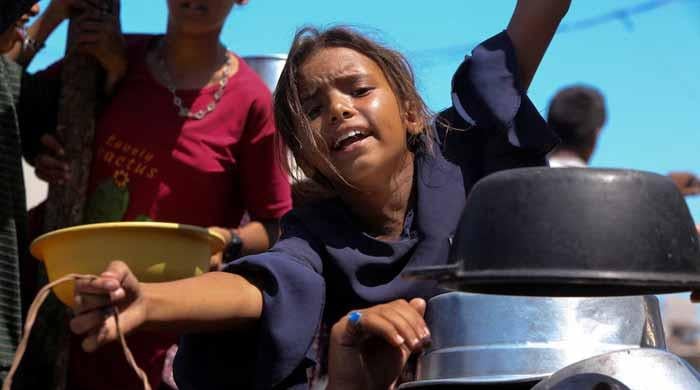

Washington on Monday pledged an initial $2 billion for United Nations humanitarian aid in 2026, far less than it has provided in recent years, warning individual UN agencies to “adapt, shrink or die”.
With its pledge, announced at the US mission in Geneva alongside the United Nations’ aid chief Tom Fletcher, the United States is pursuing a dramatic overhaul of how it funds UN humanitarian work.
Instead of handing funds to individual agencies, the United States will funnel its contributions through the UN aid agency OCHA, headed by Fletcher, which earlier this year launched a so-called Humanitarian Reset to improve efficiency and accountability.
The US funds will then be distributed to more than a dozen selected countries, including the Democratic Republic of Congo, Myanmar and Sudan.
“It is an initial anchor commitment,” Jeremy Lewin, the senior US official for foreign assistance, humanitarian affairs and religious freedom, told reporters.
“There are other countries that we will add, as we continue to get more funding into this mechanism.”
He challenged other countries to match or beat US funding for UN aid.
“This new model will better share the burden of UN humanitarian work with other developed countries and will require the UN to cut bloat, remove duplication, and commit to powerful new impact, accountability and oversight mechanisms,” US Secretary of State Marco Rubio said on X.
According to UN data, the United States remained the top humanitarian aid donor in the world in 2025, but that amount fell significantly to $2.7 billion, down from around $11 billion in 2023 and 2024, and from over $14 billion in 2022.
Other key donor countries have also been tightening their belts, triggering major upheaval in the global aid sector. “Individual UN agencies will need to adapt, shrink, or die,” a State Department statement said.
Hard priority choices
Fletcher, who is British, said the US pledge was an “extraordinary” commitment.
“The US has long been the world´s humanitarian superpower,” he said in a statement.
“Hundreds of millions of people are alive today because of American generosity — and many millions more will survive in 2026 because of this landmark investment in humanity.”
Fletcher said reform of the humanitarian system was in the pipeline, and US taxpayers would be able to see how their money was delivering life-saving impacts.
“The US is also placing a significant and encouraging vote of trust and confidence in the Humanitarian Reset, through which we are making humanitarian action faster, smarter and closer to the people on the front lines of emergencies,” he said.
“We’re cutting red tape, eliminating duplication and prioritising hard.”
When Fletcher launched the UN’s annual Global Humanitarian Appeal for 2026 earlier this month, he requested $23 billion to provide assistance to 87 million of the world’s neediest people, with a heavy focus on dire conflicts like those in Gaza, Ukraine, Sudan, Haiti and Myanmar.
The amount and number of people covered by the appeal has been dramatically reduced over recent years, as the UN strives to adapt to a new reality after President Donald Trump slashed US foreign aid spending.
The United Nations has stressed that the smaller appeal does not mean needs have shrunk.
It estimates that some 240 million people — in conflict zones, suffering from epidemics, or victims of natural disasters and climate change — are in need of emergency aid.
In 2025, the UN’s appeal for more than $45 billion was only funded to the $12 billion mark, the lowest in a decade.
That only allowed it to help 98 million people, 25 million fewer than the year before.
-

 Sports3 days ago
Sports3 days agoBrooks Koepka should face penalty if he rejoins PGA Tour, golf pundit says
-

 Sports1 week ago
Sports1 week agoPatriots vs. Ravens (Dec 21, 2025) Live Score – ESPN
-
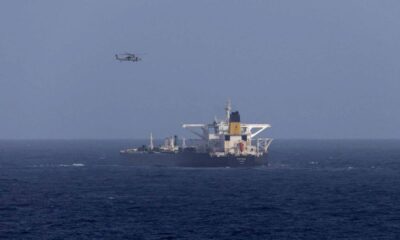
 Politics1 week ago
Politics1 week agoUS intercepts oil tanker off Venezuelan coast, Reports
-

 Entertainment1 week ago
Entertainment1 week agoDave Chappelle drops Netflix special, ‘Dave Chappelle: The Unstoppable…’
-
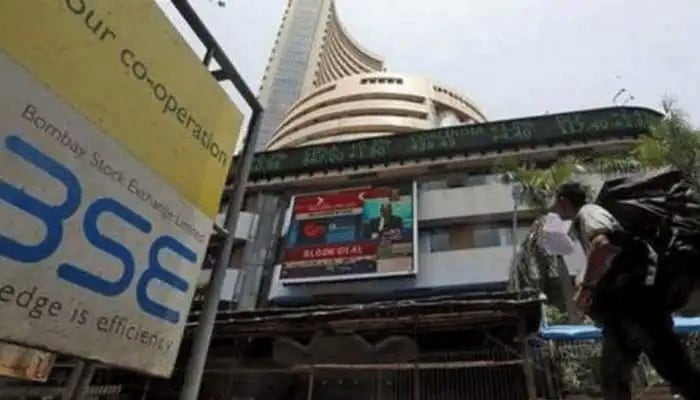
 Business1 week ago
Business1 week agoNeptune Logitek Shares List At 26% Discount, IPO Investors Suffer Nearly Rs 30,000 Losses
-

 Sports1 week ago
Sports1 week agoWATCH: Pakistan’s winning moment as Green Shirts clinch U19 Asia Cup title
-

 Business3 days ago
Business3 days agoGovt registers 144olive startups | The Express Tribune
-

 Sports1 week ago
Sports1 week agoWilliamson opens up about New Zealand future | The Express Tribune





